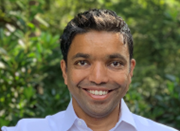Custom Healthcare Socrates Seminar, May 11-13, 2023
An international seminar developed in partnership with the Aspen Institute Socrates Program, organized under the framework of the Aspen Healthcare & Quality of Life Program, debating the resilience of healthcare systems and key challenges in public health. The seminar was conducted in English and took place in a picturesque location in Giurgiu County, close to Bucharest. The program began on Thursday afternoon and concluded on Saturday afternoon, following a closing lunch.
Financing Resilience Through Innovation in Healthcare:
Is Having the Money Enough?
Public health systems of countries around the world have been put to the test by SARS-COV-2 pandemic. This unique and often allusive disease seemed perfectly designed to expose systemic weaknesses and tested the decades-old question in public health of how to balance innovation and universal healthcare.
Different healthcare systems have managed this balance differently as decision-makers and experts are discovering live the costs and benefits of these choices. This seminar will debate key challenges of different public healthcare systems and ways in which different policies and investments are shaping outcomes, looking to develop best practices for the Romanian health system. Topics will include:
- Equity and innovation in health systems. Setting up an Innovation Fund in the Romanian healthcare system. Who would benefit more: the patients, the commercial actors or the state?
- Models for reducing costs and increasing efficiency. Value-based healthcare / Value-Based Procurement / Pay for performance payment model: is Romania prepared for it?
- Funding dilemmas. How can we pay for strengthening the resilience of health systems: improving health outcomes through in-vitro diagnostics and digital health technologies.
Additionally, discussions will address, more broadly, the cost of not investing in healthcare and not financing research & development. Furthermore, as a means of strengthening the resilience of public health systems, discussions will also explore how national pandemic preparedness plans should look like.
Bringing together key stakeholders from the Aspen Healthcare & Quality of Life Program Community, we used the Aspen Method to create a group as diverse as possible in terms of professional sectors (private, public, non-profit) and gender.
Around 20 participants debated, based on texts sent beforehand, topics relating to public policies, reforms and sustainability in the healthcare sector, focusing on the interaction between the main public, private, academic and non-governmental actors in the healthcare system.
The costs of accommodation at the Seminar location, meals, moderation, reading materials and group transfer were covered by the Aspen Institute Romania.
The participation to the seminar was by invitation only.
The participants included multiple stakeholders from the Aspen Healthcare & Quality of Life Program community.
Seminar Moderators
 DR. KAPIL PARAKH
DR. KAPIL PARAKH
Kapil is a practicing cardiologist who serves as a Senior Medical Lead at Google. Kapil has helped launch products that reach a billion people and pioneered partnerships with a range of organizations including the World Health Organization and the American Heart Association. Kapil also currently sees patients part time at the VA Medical Center and serves as an adjunct associate professor at Georgetown and an adjunct assistant professor at Yale. Before Google, Kapil served as a White House Fellow and was the principal health advisor to the Secretary of Veterans Affairs. He was also the co-founder of an award-winning non-profit on health innovation. He was previously Director of Heart Failure at Johns Hopkins Bayview where he developed novel care delivery models. As a clinician-scientist he has over 40 publications, many on psychosocial factors in heart disease. Kapil is board certified in Internal Medicine, Cardiology and Advanced Heart Failure and holds a MD, MPH and PhD. His book, Searching for Health, was published by Johns Hopkins Press.
 DR. VLAD MIXICH
DR. VLAD MIXICH
Vlad Mixich is a health policy expert with professional experience in eight countries, working for international organisations like the European Commission or the World Bank mainly in the area of health systems strengthening and healthcare reforms. Since October 2020, he works for the European Investment Bank’s Project Advisory Support unit and he is an independent health policy expert appointed by the European Parliament to the Management Board of the European Agency for Safety and Health at Work (EU-OSHA). Vlad is a Member of the Advisory Board on the Healthcare & Quality of Life Program, Aspen Institute Romania. With a degree in Medicine in Romania, Vlad holds a master’s degree in international health policy from the London School of Economics and Political Science (UK) and recently he joined the WHO Collaborating Centre for Pharmaceutical Policy and Regulation at Utrecht University (Netherlands). He was a Fulbright Scholar and Humphrey Research Fellow at Rollins School of Public Health, Emory University in Atlanta (US). He previously was an Eisenhower Fellow for Innovation focusing on health policy and a Marshall Memorial Fellow. Besides his professional activities, Vlad is a published author, and he was the editorial director of the main medical publication in Romania, his writings being awarded several European prizes.


